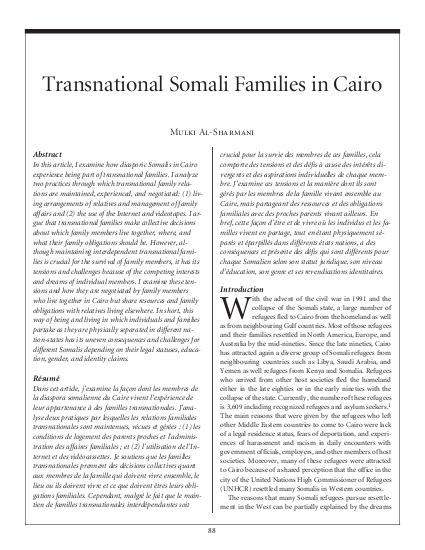
In this article, I examine how diasporic Somalis in Cairo experience being part of transnational families. I analyze two practices through which transnational family relations are maintained, experienced, and negotiated: (1) living arrangements of relatives and management of family affairs and (2) the use of the Internet and videotapes. I argue that transnational families make collective decisions about which family members live together, where, and what their family obligations should be. However, although maintaining interdependent transnational families is crucial for the survival of family members, it has its tensions and challenges because of the competing interests and dreams of individual members. I examine these tensions and how they are negotiated by family members who live together in Cairo but share resources and family obligations with relatives living elsewhere. In short, this way of being and living in which individuals and families partake as they are physically separated in different nation- states has its uneven consequences and challenges for different Somalis depending on their legal statuses, education, gender, and identity claims.
Resource collections
- UN Habitat - Urban Response Collection
- Urban Response - Urban Crisis Preparedness and Risk Reduction
- Urban Response Collection - Community Engagement and Social Cohesion
- Urban Response Collection - Economic Recovery
- Urban Response Collection - Environment and Climate Change
- Urban Response Collection - Housing, Land and Property
- Urban Response Collection - Urban Crisis Response, Recovery and Reconstruction
- Urban Response Collection - Urban Resilience